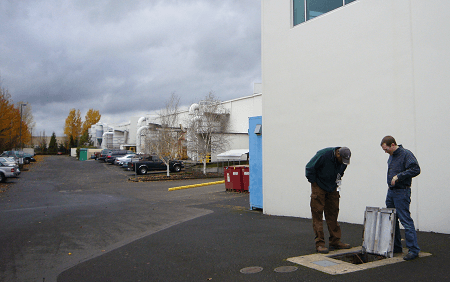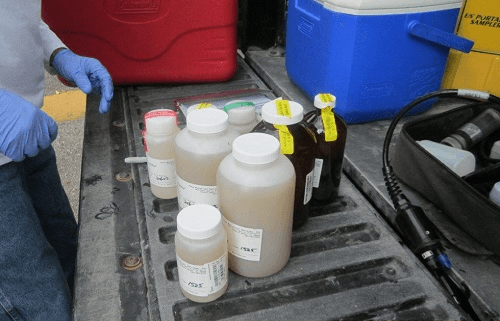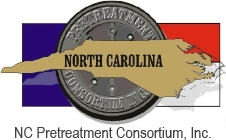Pretreatment Program
Pretreatment Program
The Pretreatment Program administers local, state and federal regulations affecting area businesses and the quality of the wastewater discharged into wastewater treatment system. These regulations were implemented:
- To prevent the introduction of pollutants into the municipal wastewater system which will interfere with the operation of the system or contaminate the resulting sludge;
- To prevent the introduction of pollutants into the municipal wastewater system which will pass through the wastewater system, inadequately treated, into any waters of the State or otherwise be incompatible with the system;
- To promote reuse and recycling of wastewater and sludge from the municipal system;
- To protect both municipal personnel who may be affected by sewage, sludge, and effluent in the course of their employment as well as protecting the general public;
- To provide for equitable distribution of the cost of construction, operation, maintenance and improvement of the municipal wastewater system; and
- To ensure that the municipality complies with its NPDES permit conditions, sludge use and disposal requirements and any other federal or state laws to which the municipal wastewater system is subject.
Area businesses are required to install, operate and adequately maintain pretreatment equipment and/or systems to remove those pollutants that could otherwise damage or obstruct the wastewater collection system; or interfere with or pass through the wastewater treatment process. Examples of such pollutants include heavy metals, cyanide, toxic organics, and acidic or caustic wastes from industrial operations. The wastewater from restaurants and other food service industries are often more problematic due to conventional pollutants such as grease and solids.
Some major elements of the Pretreatment Program include the review of pretreatment designs, the issuance of permits, the performance of inspections, the collection of samples, the review of permittee self-monitoring reports and the initiation of enforcement activities when appropriate.
There are approximately 900 Significant Industrial Users (SIUs) who discharge industrial wastewater to over 140 wastewater treatment facilities in North Carolina.
Federal and State Pretreatment Regulations 15A NCAC 2H .0905 and .0916 and 40 CFR 403.8(f)(1)(iii) require local delegated pretreatment programs to effectively control and document the discharge of wastewater from Significant and Categorical Industrial Users to the wastewater treatment facilities.




